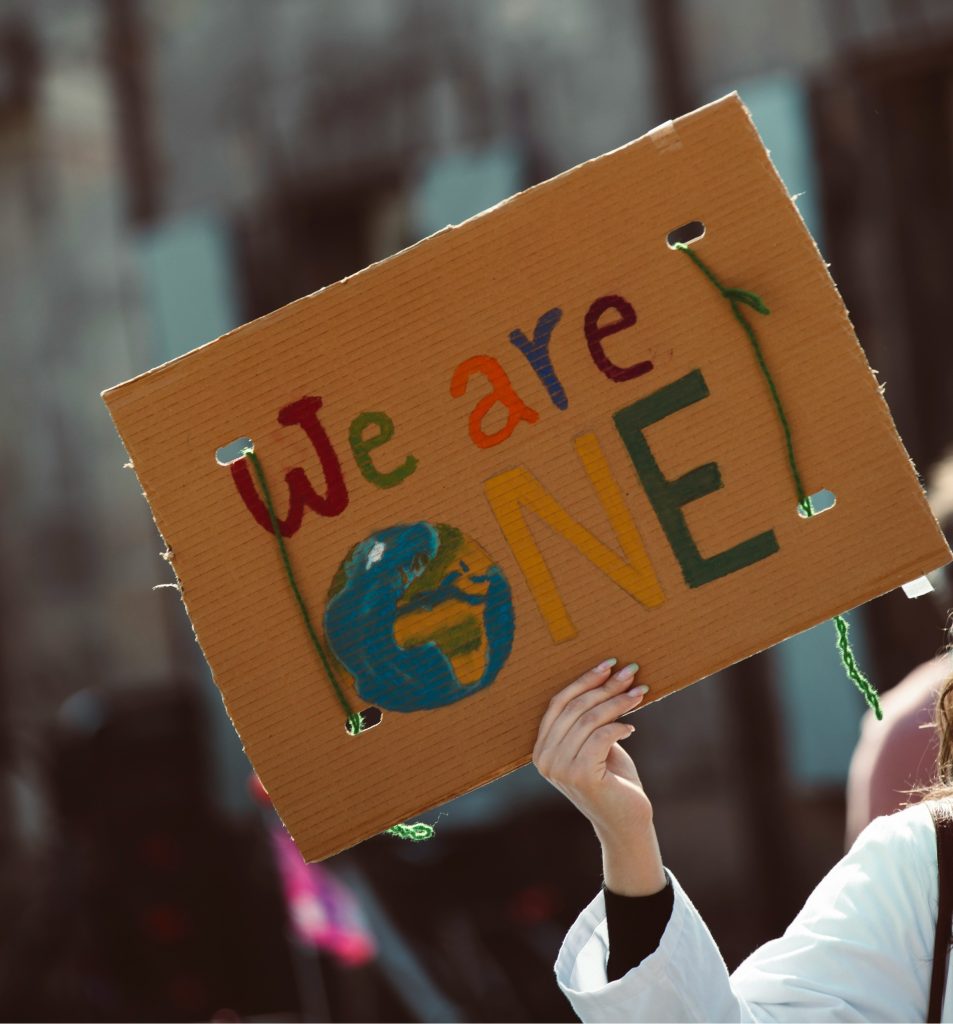By JoAnne Wadsworth, Communications Consultant, G20 Interfaith Forum
— —
On October 8, 2024, the G20 Interfaith Forum, in collaboration with the Berkley Center for Religion, Peace & World Affairs at Georgetown University, hosted a webinar titled “Environment and the Interfaith Rainforest Initiative” as part of a series leading up to the G20 Summit in Rio de Janeiro. This webinar focused on the critical issues of climate change, rainforest preservation, and the role of religious communities in addressing these global challenges.
Opening Remarks: Katherine Marshall
Katherine Marshall, Vice President of the G20 Interfaith Forum Association, opened the webinar by introducing the series and its focus on priority recommendations for the upcoming G20 Summit. She emphasized the importance of religious communities as central players in addressing global climate issues. The webinar specifically highlighted the experience of the Interfaith Rainforest Initiative, which covers three major rainforest areas: the Amazon, the Congo Basin, and Southeast Asia.
Carlos Vicente: The Amazon Basin Initiative
Carlos Vicente, leading the Interfaith Rainforest Initiative’s Amazon Basin initiative, highlighted the urgent need for a change in the development model for the Amazon region. He emphasized the importance of adopting a sustainable approach that respects environmental laws and the rights of indigenous peoples.

Vicente also discussed the ecological impact of the current development model, which contributes to biodiversity loss, carbon release, and worsening of the global climate crisis. He stressed that preserving the Amazon’s biological, social, and cultural diversity requires a profound change in the mentality of political and business leaders, as well as the general population.
“The current model is predatory and it’s based on replacing the forest with agriculture, livestock, and mining. It is also based on disrespect of environmental laws, the use of violence, and the violation of the rights of indigenous peoples and traditional communities.”
Laura Vargas: The Spiritual Dimension
Laura Vargas, speaking from Peru, addressed the spiritual dimension of the environmental challenge. She emphasized the urgency of the situation and the responsibility of faith communities to care for and protect the planet.
Vargas also highlighted the interconnectedness of environmental issues with broader societal challenges, including war and social inequalities. She stressed that the destruction of the Amazon affects not only the region but has global implications, calling for solidarity and action from all sectors of society.
“We need to promote a new way of seeing the life of the planet. The tropical forests are not just trees; they are life systems that we have the responsibility to care for and protect. I think that our generation and the life of future generations depend on it.”
Elías Szczytnicki: Religions for Peace
Elias Szczytnicki, representing Religions for Peace, discussed the importance of interfaith cooperation in addressing climate issues. He emphasized the role of religious communities in bringing ethical perspectives to global policy discussions.
Szczytnicki elaborated on the unique position of Religions for Peace as a global interfaith organization with a presence in over 90 countries, including the five countries where the Interfaith Rainforest Initiative is being implemented. He stressed the importance of connecting local actions with global policies and the role of interfaith dialogue in shaping public opinion and influencing policymakers.
“We understand that as one of the only global interfaith organizations based in more than 90 countries around the world, including the five countries where the initiative is being implemented, Religions for Peace needed to take a place of leadership in this initiative.”
Peter Mandaville: USAID Perspective
Peter Mandaville, representing USAID, provided insights on the role of faith-based organizations in addressing climate change from a development perspective. He highlighted the importance of including religious voices in combating climate skepticism and motivating collective action.

Mandaville also discussed USAID’s long-standing partnership with faith-based organizations and the agency’s recent policy on working with faith-based global organizations. He emphasized the need for faith-based environmentalists to collaborate with like-minded peers in civil society and the private sector to maximize their impact.
“As we face growing transformation in the information space, the surge we see today in misinformation, disinformation, climate denialism around the world, religious voices are critical to combating climate skepticism and motivating collective action.”
Q&A and Discussion
During the discussion, speakers addressed several key points:
- The importance of women’s leadership in addressing climate issues.
- The need for innovative financial mechanisms to combat climate change and biodiversity loss.
- The role of the G20 in tackling the climate crisis, given that its members represent 80% of global greenhouse emissions.
- The potential impact of the upcoming G20 Summit and COP30 on global climate action.
Key Points
- Urgent need for a sustainable development model in the Amazon region.
- Critical role of faith communities in addressing climate change and protecting rainforests.
- Importance of interfaith cooperation and bringing ethical perspectives to global policy discussions.
- Need for innovative financial mechanisms and increased support for countries affected by climate disasters.
- Significance of the upcoming G20 Summit in Rio de Janeiro for advancing climate action.
Conclusion
The webinar highlighted the critical intersection of faith, environment, and global governance in addressing the climate crisis. As the G20 Summit approaches, the speakers emphasized the urgent need for action and the unique role that religious communities can play in advocating for and implementing sustainable solutions. The Interfaith Rainforest Initiative serves as a powerful example of how interfaith cooperation can contribute to preserving vital ecosystems and combating climate change.
The discussions during this webinar will inform the recommendations presented to G20 leaders, potentially influencing global climate policy and action in the coming years. As the world faces increasingly severe climate challenges, the voice of faith communities in forums like the G20 Interfaith Forum becomes ever more crucial in shaping a sustainable and just future for all.
— —
JoAnne Wadsworth is a Communications Consultant for the G20 Interfaith Forum Association and Editor of the Viewpoints Blog.


